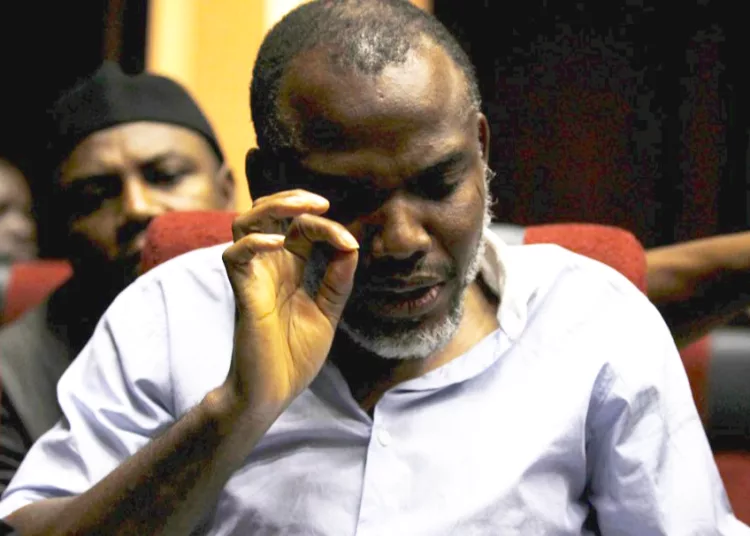A United Kingdom-based legal analyst, Njoku Jude Njoku, has blamed the continued detention of the Indigenous People of Biafra (IPOB) leader, Mazi Nnamdi Kanu, on what he described as serious legal blunders and strategic missteps of Kanu’s former legal team.
In a statement issued to journalists yesterday in Abuja, Njoku accused the past legal team of failing to enforce Kanu’s discharge by the Court of Appeal on October 13, 2022, and instead allowing the Federal Government to appeal the ruling using a civil procedure — Order 6 Rule 1 of the Court of Appeal Rules — which, according to him, should not apply in a criminal matter.
“This was a colossal legal blunder,” Njoku stated. “That rule is meant for civil appeals, not criminal ones. It should never have applied. By going along with this, Ozekhome effectively allowed a dead case to be reopened.”
The legal analyst argued that the Supreme Court should never have entertained the government’s appeal after the Court of Appeal had ruled that Nigeria lacked the legal authority to try Kanu due to his extraordinary rendition from Kenya, which he said violated both Nigerian and international law.
He further dismissed the former Attorney-General Abubakar Malami’s interpretation that Kanu’s discharge was not an acquittal, explaining that the provisions Malami often quoted, such as Section 396(7) of the Administration of Criminal Justice Act (ACJA), were misapplied.
“Section 396(7) has nothing to do with discharge or acquittal. It only allows a judge promoted to a higher court to finish pending cases,” Njoku said. “The real legal standard is that when a court says it lacks jurisdiction, that decision renders all proceedings null and void — and amounts to an acquittal.”
He cited FRN v. Osahon (2006) 5 NWLR (Pt. 973) 361 at 405, in which the Supreme Court held that where a court lacks jurisdiction, the proceedings are a nullity regardless of how well they were conducted.
Njoku also raised concerns over the government’s decision to re-file terrorism charges against Kanu under the repealed Terrorism Prevention Act of 2013, despite the existence of a newer law — the Terrorism (Prevention and Prohibition) Act 2022.
“Section 108(2) of the new law says old cases can continue only if they were still alive when the new law came into force. In Kanu’s case, the Court of Appeal had already killed the case. You can’t revive a dead case — that’s basic law,” he argued, citing Section 6(1)(c) of the Interpretation Act 1964.
While acknowledging the efforts of the current defence team led by senior advocate Kanu Agabi (SAN), Njoku said they are constrained by the legal missteps made in 2022.
“They only have two key arguments left: First, that the Court of Appeal’s ruling on lack of jurisdiction amounted to a final acquittal. Second, that Kanu cannot be tried under a law that no longer exists,” he explained.
He urged the public and stakeholders to focus on securing Kanu’s release, rather than trading blame.
“The mistake wasn’t made yesterday. It was made in late 2022, when the defence failed to act decisively. Blaming those now trying to clean up the mess is both unfair and unhelpful,” he said.
Njoku concluded by calling for a united legal front and warning against the dangers of using civil rules in criminal proceedings or retroactively enforcing repealed laws.
“With legal luminaries like Kanu Agabi SAN now involved and Justice Omotosho presiding, we have a real shot at restoring constitutional order and freeing a man who was already discharged. Let’s not waste it,” he added.
We’ve got the edge. Get real-time reports, breaking scoops, and exclusive angles delivered straight to your phone. Don’t settle for stale news. Join LEADERSHIP NEWS on WhatsApp for 24/7 updates →
Join Our WhatsApp Channel










